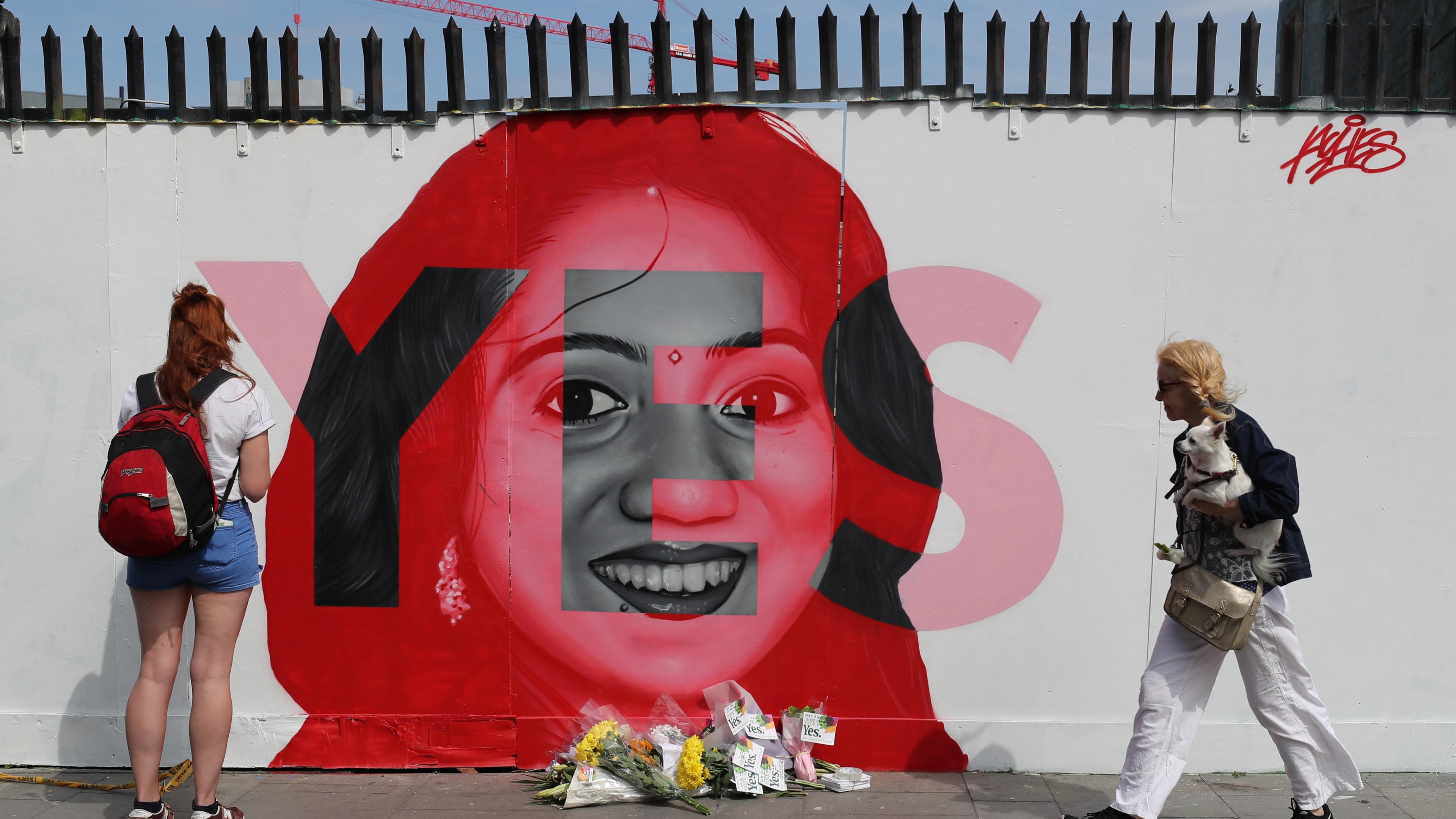IRELAND’S historic abortion referendum looks to have delivered a landslide win for those advocating liberalisation, after two major exit polls recorded huge victory margins.
One poll by national broadcaster RTE suggested almost 70% of the electorate have voted to end the country’s all but blanket ban on terminations, with another, by The Irish Times, recording 68% in favour of reform.
Counting does not begin until Saturday morning, with a formal result not due until later in the day, but the data suggests Ireland is on the cusp of a defining moment in its social history.
Reacting to the exit polls, Taoiseach Leo Varadkar, a vocal proponent of liberalisation, tweeted: “Thank you to everyone who voted today. Democracy in action. It’s looking like we will make history tomorrow.”

Thousands of Irish citizens living overseas travelled home in droves to exercise their democratic right on the emotive issue.
The vote saw citizens effectively opt to either retain or repeal the Eighth Amendment of the state’s constitution, which prohibits terminations unless a mother’s life is in danger.
The specific question people were asked was whether they wanted to see the Eighth Amendment replaced with wording in the constitution that would hand politicians the responsibility to set future laws on abortion, unhindered by constitutional strictures.
If the Yes vote is confirmed, the Irish Government intends to legislate by the end of the year to make it relatively easy for a woman to obtain the procedure in early pregnancy.
Ministers have promised to allow terminations within the first 12 weeks, subject to medical advice and a cooling-off period, and between 12 and 24 weeks in exceptional circumstances.
The Behaviour & Attitudes poll for RTE surveyed 3,800 people at 175 polling stations across the country.
With a margin of error of +/- 1.6%, 69.4% voted to repeal the Eight Amendment of the constitution while 30.6% voted No.
The exit poll conducted for The Irish Times indicated a 68% to 32% Yes vote.
That poll saw 4,000 voters interviewed by Ipsos/MRBI as they left 160 polling stations on Friday.
The margin of error is estimated at +/- 1.5%, the newspaper said.
The polling data suggests a huge gulf in views held by Ireland’s youngest and oldest generations.
Both exit surveys recorded support for the Yes camp at approaching 90% among 18 to 24-year-olds.
By contrast, the over-65 group was the only age bracket to vote No, with around 60% wanting to retain the Eighth Amendment.
Ireland’s deputy premier, Tanaiste Simon Coveney, another Yes campaigner, said the referendum had made him proud to be Irish.
“Thank you to everybody who voted today – democracy can be so powerful on days like today – looks like a stunning result that will bring about a fundamental change for the better,” he tweeted late of Friday night.
“Proud to be Irish tonight.”
Health minister Simon Harris, whose proposed new abortion laws were subjected to intense scrutiny during the campaign, tweeted:
“Will sleep tonight in the hope of waking up to a country that is more compassionate, more caring and more respectful.”
As predicted, urban areas appear to have been more strongly in favour of repeal, at just over 70%.
But according to the polls, rural areas also voted Yes, with around 60 to 63% in favour.
A total of 3.3 million citizens were registered to vote in Friday’s referendum.
The Catholic Church was among influential voices calling for a No vote, arguing that the life of the unborn should be sacrosanct.
The Yes camp, which portrayed itself as modernising and in step with international opinion, said repeal would demonstrate Ireland’s compassion for thousands of Irish women forced to travel to England for the procedure.
The debate during eight weeks of campaigning was emotive and divisive.
While the leaders of all the main political parties backed change, there were also many vocal and high profile advocates for the retention of the Eighth.
The amendment is a clause in the Irish constitution which was written after a previous referendum on the issue in 1983 recognised the right to life of the unborn child.
It protects the equal right to life of the mother and the unborn and effectively prohibits abortion in most cases.
In 1992, women in Ireland were officially given the right to travel abroad, mostly to the UK, to obtain terminations.
Pro-repeal campaigners say almost 170,000 have done so.
The liberalisation campaign gathered momentum in 2012 after an Indian dentist, Savita Halappanavar, died in hospital in Galway aged 31 when she was refused an abortion during a miscarriage.
Her husband, Praveen Halappanavar, said she repeatedly asked for a termination but was refused because there was a foetal heartbeat.
In 2013, following an outcry over Mrs Halappanavar’s death, legislation was amended to allow terminations under certain tightly restricted circumstances – the Protection of Life During Pregnancy Act.
When doctors felt a woman’s life was at risk due to complications from the pregnancy, or from suicide, they were permitted to carry out an abortion.
Under pressure from the UN about alleged degrading treatment of women who travelled to England for terminations, the Irish Government began exploring the possibility of further reform, culminating in the calling of Friday’s referendum and the promise to legislate.

Enjoy the convenience of having The Sunday Post delivered as a digital ePaper straight to your smartphone, tablet or computer.
Subscribe for only £5.49 a month and enjoy all the benefits of the printed paper as a digital replica.
Subscribe